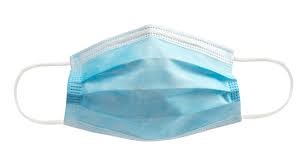- Hyderally & Associates P.C | Employment Lawyers NJ, NY
- (973) 509-8500
- tyh@employmentlit.com
New York Case Offers Guidance on Filing Claims Against Employers for Failing to Follow Health and Safety Laws During the Pandemic
Can Your Employer Mandate That You Get a COVID-19 Vaccine?
December 2, 2020How Soon Will Offices and Business Fully Reopen as Employees Get Vaccinated?
December 8, 2020New York Case Offers Guidance on Filing Claims Against Employers for Failing to Follow Health and Safety Laws During the Pandemic
By: Lía Fiol-Matta, Esq. and Ty Hyderally, Esq.
In these uncertain pandemic times, many employees are able to work from home yet others cannot protect themselves in this manner and are required to report to offices, retail businesses and other places of employment. Many employees worry about whether their employers are following required safety guidelines to protect them from contracting COVID-19 in the workplace. Earlier this month, a lawsuit against Amazon was dismissed, alleging failures to comply with New York law and “New York Forward” (NY’s COVID-19 reopening plan) minimum requirements for businesses. The United States District Court for the Eastern District of New York in Palmer et al. v. Amazon.com Inc. et al., No. 20-cv-2468, 2020 WL 6388599 held that it is the role of the federal Occupational Safety and Health Administration (“OSHA”), rather than the courts, to decide whether employers are taking enough precautions to protect workers from COVID-19.

Amazon employees who work at the JFK8 fulfillment center in Staten Island, New York, as well as individuals who share living space with the employees, filed a lawsuit against Amazon on June 3, 2020, asserting claims for breach of the duty to provide a safe workplace under New York Labor Law (NYLL) § 200 and public nuisance, in addition to claims relating to untimely pay of COVID-19 relief. JFK8 runs twenty-four hours a day, seven days a week, and is larger than fourteen football fields. The facility employs thousands of workers. Amazon tracks associates’ amount of time spent working on their assigned tasks by scanners that associates use to scan packages, items and bins. Amazon tracks employees in real time to determine whether they perform a task in each minute and aggregates a total time off task (“TOT”) every day. Employees receive feedback regarding periods over five minutes that elapse between scanner activities which is totaled at the end of the day. Before the pandemic, employees were required to scan activity at certain rates. However, in March 2020, Amazon suspended its productivity feedback policy and informed employees that it would not track as time off time spent keeping social distancing, handwashing, sanitizing workstations and using the restroom.
In the Amended Complaint, filed in late July 2020, plaintiffs sought injunctive relief, arguing that Amazon’s policies and operations at JFK8 violated New York law and “New York Forward” minimum requirements. The plaintiffs argued that Amazon’s timekeeping method encouraged associates to skip basic cleaning and sanitation, as well as rush through the facility in disregard of social distancing. Employees are warned and penalized, including with termination, if their TOT goes over certain amounts. TOT is automatically counted even during paid breaks, including bathroom breaks, which sometimes is adjusted by supervisors. Plaintiffs claim that employees’ fear of accumulating TOT causes them to skip hand washing and sanitizing their workstations, and social distancing. While Amazon suspended rate requirements in March 2020, plaintiffs argue that the change was not effectively communicated to employees until July, there is still confusion over the policy, and the productivity requirements could be reinstated at any time. Amazon admitted to this last point in October 2020, with regard to certain employees. The plaintiffs also argued that Amazon failed to communicate the availability of COVID-19 leave to its employees or promptly pay associates for their required leave.
Amazon moved to dismiss the Amended Complaint on August 11, 2020, asking the Court, under primary jurisdiction doctrine, to refer the matter to OSHA, as the administrative agency with special competence to decide on plaintiffs’ claims. Plaintiffs argued in response that the claims were not within the special competence of OSHA, and that OSHA lacked jurisdiction over public health and safety issues governed by state law. Amazon further argued that the plaintiffs had not alleged that Amazon’s work environment uniquely created a risk of contracting COVID-19. Judge Brian M. Cogan held that the doctrine of primary jurisdiction applied to the plaintiffs’ public nuisance and Section 200 claims. In applying the doctrine, the court considered four factors delineated in the Second Circuit Court of Appeals case, Ellis v. Tribune Television Co.:
- whether the question at issue is within the conventional experience of judges or whether it involves technical or policy considerations within the agency’s particular field of expertise;
- whether the question at issue is particularly within the agency’s discretion;
- whether there exists a substantial danger of inconsistent rulings; and
- whether a prior application to the agency has been made.
The court stated that the main issue in dispute was whether Amazon’s workplace policies at JFK8 adequately protected the safety of its employees. Holding that courts “lack the training, expertise, and resources to oversee compliance with evolving industry guidance,” the court ruled that the claims and proposed injunctive relief “[went] to the heart of OSHA’s expertise and discretion.” The court explained that “The Occupational Safety and Health Administration (“OSHA”) is the federal agency within the Department of Labor specifically charged with regulating health and safety in the workplace. The Court further noted that OSHA has the primary responsibility for setting and enforcing standards and providing research, information, education, and training to assure safe and healthful working conditions. Further, the Court held that OSHA has broad prosecutorial discretion to carry out its enforcement responsibilities under the Occupational Safety and Health Act (“OSH Act”), 29 U.S.C. § 651 et seq.” The court added that OSHA continues to use its enforcement mechanisms during the pandemic.
Regarding plaintiffs’ claim against Amazon for public nuisance, the court explained that conduct that spreads a contagious disease is a public nuisance if it violates the public’s right to health and safety and causes injury. Individuals can bring private causes of action for public nuisance, “only if it is shown that [they] suffered special injury beyond that suffered by the community at large,” and the injury alleged “must be different in ‘kind,’ not simply ‘degree,’” from injuries suffered by the public. Here, the plaintiffs alleged they had suffered an injury “common to the New York City community at large.” The court concluded that JFK8 was not the source of COVID-19, and the public at large could not avoid COVID-19 simply by not being at JFK8. For that reason, the court held that any injuries alleged by the plaintiffs were different in degree, rather than kind, from those suffered by the public and their claim of public nuisance must fail.
The court granted Amazon’s motion to dismiss in whole, including the claims related to untimely payment of COVID-19 leave. Plaintiffs considering filing lawsuits against their employers for violations of health and safety laws and regulations related to COVID-19, regardless of where they live, should consider filing claims with OSHA or the appropriate federal administrative agency charged with investigating health and safety violations and enforcing sanctions against employers, in addition to filing such claims in the Courts, under state or federal laws that address these matters. Individuals with questions on their employment rights as they pertain to workplace safety, should consider counsel concentrating in employment law, such as our law firm.
En nuestra firma hablamos español. This blog is for informational purposes only. It does not constitute legal advice, and may not reasonably be relied upon as such. If you face a legal issue, you should consult a qualified attorney for independent legal advice with regard to your particular set of facts. This blog may constitute attorney advertising. This blog is not intended to communicate with anyone in a state or other jurisdiction where such a blog may fail to comply with all laws and ethical rules of that state of jurisdiction.

